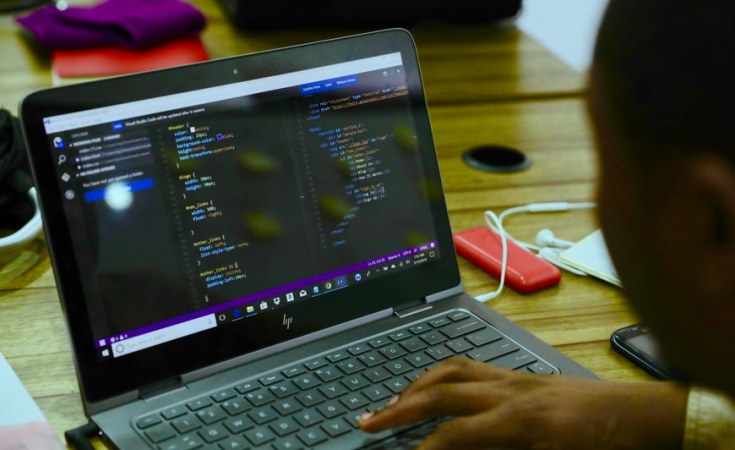... Pledges free, fair poll, bids farewell to UN
IN what appeared to be a valedictory speech, President Muhammadu Buhari yesterday addressed the United Nations General Assembly, UNGA, in New York for the last time and called for debt cancellation for developing countries, noting that it poses "severe challenges" to the affected nations.
President Buhari is expected to exit the office of President of Nigeria on May 29 next year when he must have completed his second tenure in office as required by law.
Giving the country's statement at the 77th General Assembly, the President recalled that he would have first addressed them in 1984 as military head of state but had his first opportunity in 2015 when he became the democratically elected president of Nigeria.
He said, "Indeed, the multifaceted challenges facing most developing countries have placed a debilitating chokehold on their fiscal space."
"This equally calls for the need to address the burden of unsustainable external debt by a global commitment to the expansion and extension of the Debt Service Suspension Initiative to countries facing fiscal and liquidity challenges as well as outright cancellation for countries facing the most severe challenges."
Telling the world body that by this time next year, Nigeria would have a new president representing it, Buhari thanked the world leaders who had cooperated with Nigeria in the efforts to tackle challenges, while he also highlighted the actions of the country in bringing peace and stability to West Africa. President Buhari spoke of the continuing challenges facing the world which, according to him, has been exacerbated by the war in Ukraine.
He vowed to entrench a process of free, fair, transparent and credible elections through which Nigerians elect leaders of their choice.
While telling the august body that next year, there will be a new face speaking for Nigeria from the podium of the Assembly Hall, Buhari reiterated his commitment to constitutional term limits and Nigeria's effort to promote the rule of law and democracy in West Africa, citing the country's support to The Gambia, Guinea Bissau and Chad during their political impasse.
He said: "We believe in the sanctity of constitutional term limits and we have steadfastly adhered to it in Nigeria. We have seen the corrosive impact on values when leaders elsewhere seek to change the rules to stay on in power.
"Indeed, we are now preparing for general elections in Nigeria next February. At the 78th UNGA, there will be a new face at this podium speaking for Nigeria.
"Ours is a vast country strengthened by its diversity and its common values of hard work, enduring faith and a sense of community.
"We have invested heavily to strengthen our framework for free and fair elections. I thank our partners for all the support that they have provided our election institutions.
"As President, I have set the goal that one of the enduring legacies I would like to leave is to entrench a process of free, fair and transparent and credible elections through which Nigerians elect leaders of their choice."
Highlighting support for democracy in the sub-region, President Buhari said in The Gambia, Nigeria helped guarantee the first democratic transition since independence and stood by the democratically elected government in Guinea-Bissau when it faced mutiny.
He added that following the tragic death of President Idris Deby Itno of Chad in the battlefield, Nigeria joined forces with its other neighbours and international partners to stabilize the country and encourage the peaceful transition to democracy, a process which is ongoing.
Buhari added: "Democracy is an idea that crosses time and borders. Certainly, democracy does have its limitations. 'The wheels of democracy turn slowly. It can demand compromises that dilute decisions.
"Sometimes, it bends too much to special interests that exercise influence, not always for the general good, in a manner disproportionate to their numbers.
"But it has been my experience that a democratic culture provides a Government with the legitimacy it needs to deliver positive change."
Recalling that the first time he could have addressed the Assembly was in 1984, as Military Head of State of Nigeria, President Buhari said it was a great privilege to personally address the Assembly, thirty-one years later, in 2015, "as the democratically elected President of my country."
"As I approach the end of my second and final four-year term, I am reminded of how much has changed in Nigeria, in Africa, and in the world, and yet, how some challenges remain," he said in the address, which also focused on pressing international issues including the consequences of the war in Ukraine, Climate Change, malignant use of technology, debt service suspension, among others.
On the war in Ukraine, President Buhari warned that the danger of escalation further justified Nigeria's resolute calls for a nuclear-free world and a universal Arms Trade Treaty, which were necessary measures to prevent global human disasters.
He demanded that world leaders must find quick means to reach consensus on the nuclear non-proliferation treaty, with related commitments by nuclear weapon states.
He said the war would have adverse consequences on all, hindering the capacity of the international community to work together to resolve conflicts elsewhere, especially in Africa, the Middle-East and Asia:
"Indeed, the ongoing war in Ukraine is making it more difficult to tackle the perennial issues that feature each year in the deliberations of this Assembly, such as nuclear disarmament, the right of the Rohingya refugees to return to their homes in Myanmar, and the Palestinians' legitimate aspirations for statehood and reduction of inequalities within and among nations."


